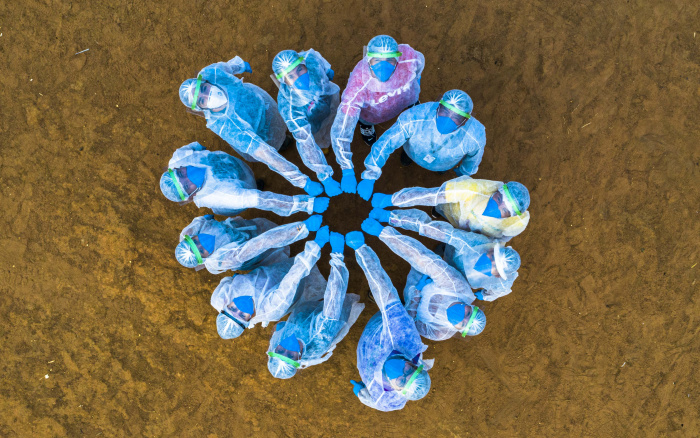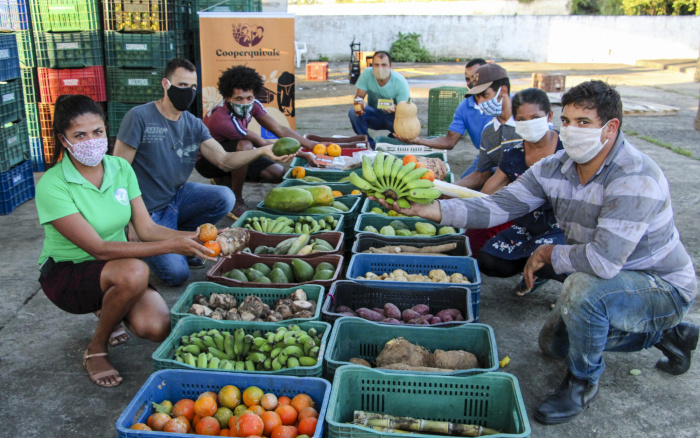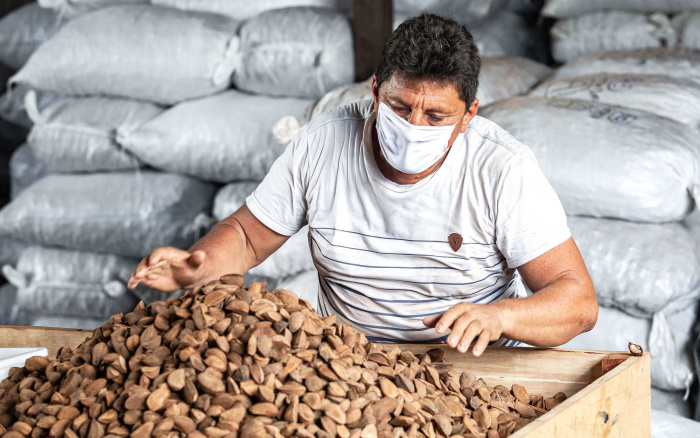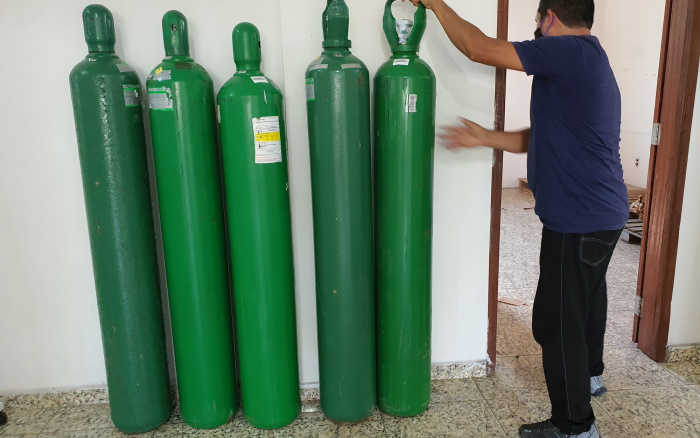Você está na versão anterior do website do ISA
Atenção
Essa é a versão antiga do site do ISA que ficou no ar até março de 2022. As informações institucionais aqui contidas podem estar desatualizadas. Acesse https://www.socioambiental.org para a versão atual.
ISA wins the European Union 2020 Human Rights Award
Monday, 15 de March de 2021 
Find out in detail ISA's action axis in combating Covid-19 on the website:
Esta notícia está associada ao Programa:
Winning project promotes an alliance between government and civil society against the Covid-19 pandemic and executes emergency plans alongside indigenous, quilombola and riverside dwellers
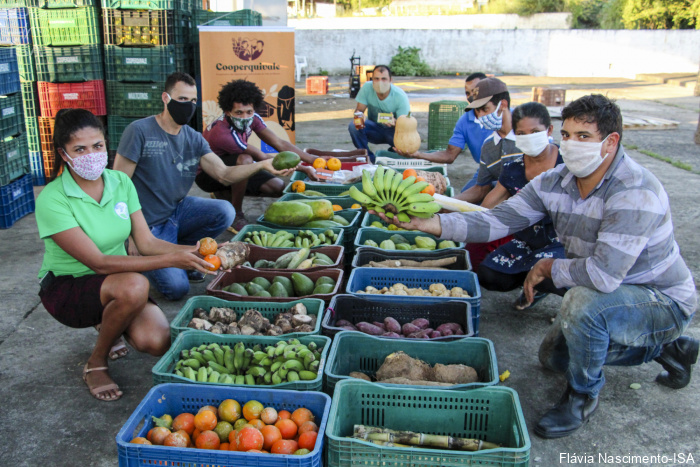
Instituto Socioambiental (ISA) has won the European Union 2020 Human Rights Award with the project “Emergency plans to combat the Covid-19 pandemic alongside indigenous, quilombolas, riverside dwellers”.
The objective of the award, launched by the Delegation of the European Union in Brazil, is “to acknowledge, encourage and give visibility to an emblematic project in progress carried out by a Brazilian Civil Society Organization (CSO), with a focus on protecting and defending the rights of groups vulnerable groups most affected by the pandemic and its side effects.”
Honorable mentions
The honorable mentions of the Human Rights Award of the European Union 2020 are Solar Meninos de Luz, which promotes integral education, culture, sports, basic care and social assistance to the families of Pavão-Pavãozinho and Cantagalo slums, in Rio de Janeiro, and Habitat for Humanity Brazil, which is part of the international network Habitat for Humanity, whose cause is the elimination of all inadequate forms of housing.
According to Ignacio Ybáñez, the European Union ambassador to Brazil, it was “an honor” to have given the prize to ISA for the project, “which included several Brazilian states such as São Paulo, Mato Grosso, Pará, Amazonas and Roraima”.
“We were able to hear the testimonies of the winners and it was a lesson in solidarity and commitment to the promotion of human rights. Congratulations and above all thanks for your example!”, said Ybáñez on a social network.
In mourning and in the struggle for dignity and rights, ISA changed its way of working as soon as the Covid-19 pandemic settled in Brazil, in line with guidelines from Brazilian health authorities and the World Health Organization (WHO).
Immediately, ISA started to elaborate and execute emergency plans to attend urgencies faced by its historical partners: the indigenous, quilombola and riverside dwellers communities that live and protect their territories in Vale do Ribeira (SP), Xingu (MT and PA) and in Rio Negro (AM and RR).
ISA's emergency action was carried out entirely in a network with remote articulation, involving more than 25 financing partners and 45 execution partners in the territories, including local associations, other NGOs, universities and municipal, state and federal government agencies.
Find out in detail ISA's action axis in combating Covid-19 on the website:
emergenciacovid.socioambiental.org
ISA addressed one of the main challenges in working with indigenous peoples and traditional communities: the lack of access to health services in remote areas.
It is the first time that ISA has acted in a humanitarian emergency. So far, almost 70,000 people have been impacted in five different territories, which together add up to more than 50 million hectares of forest - an area equivalent to Spain.
“Orienting our actions towards real needs is a principle that ISA does not give up. We are talking about taking care of people's lives. This award acknowledges this way of working and gives us more strength to continue fighting, as the situation continues to get worse every day,” said Rodrigo Junqueira, ISA's executive secretary.
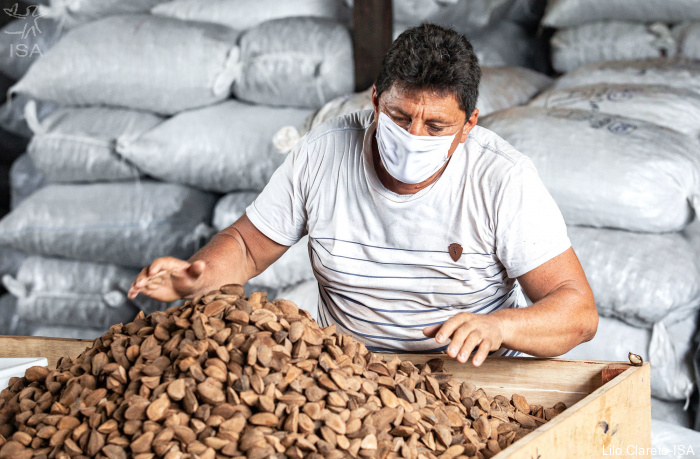
For dignity and for the right to life
The emergency plans were divided into four action axes to guarantee the right to information, the right to health and life, and the right to food and income.
A humanitarian catastrophe in itself, the pandemic has been exacerbated by misinformation. For this reason, ISA and its partners created communication strategies to offer reliable information about the pandemic, respecting the specificities of the populations, such as WhatsApp audios, printed booklets, community radio stations and sound trucks, with materials in the indigenous languages spoken in the territories.
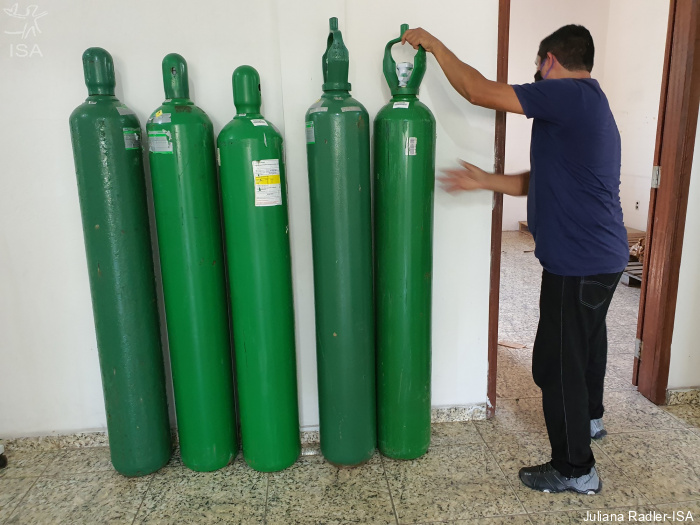
At the same time, ISA created, with the support of partners, two sites to monitor the progress of Covid-19 with cross-checking of government data and local sources to overcome the dead-lock of the lack of information about the disease.
Access the version with data on the indigenous situation: https://covid19.socioambiental.org/
Access the version with data on the quilombola situation: https://quilombosemcovid19.org/
To sidestep the difficulty in accessing public health, ISA developed the necessary infrastructure for remote medical care using the internet and contributed to the construction and equipping of "field wards" - or UAPIs (Indigenous Primary Care Units) - providing generators to personal protective equipment, as well as cylinders, oxygen concentrators and rapid tests.
On another front, the continuity of the economy that keeps forests standing in the territories was essential to guarantee the continuity of income generation as well as to contribute with food security. The forest economy allowed indigenous peoples, riverside dwellers and quilombolas to remain in isolation, delaying as much as possible the entry of the coronavirus into their communities.
At the same time, forest products helped to feed cities during the pandemic. Food without pesticides, with high nutritional potential, as a result of the work of extractivism and of the partners' farms, reached vulnerable families in both rural and urban contexts.
In addition, utensils were also distributed for productive activities of the communities, such as fishing and processing of forest products, and hygiene items, such as alcohol gel and masks.
The emergency work and actions against the Covid-19 pandemic continue in 2021, according to ISA's partners needs and always in defense of their rights.
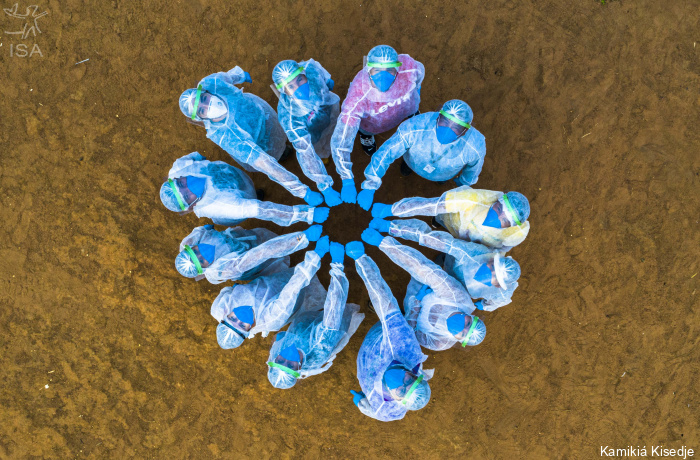
Roberto Almeida
ISA
Imagens:


